7 items found
Page 1 of 1
-
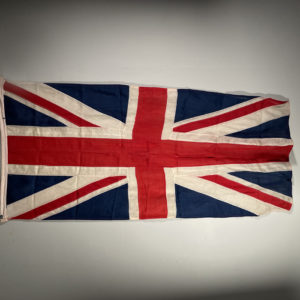
The Union Flag
£195 -
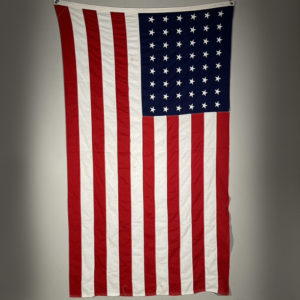
The Stars and Stripes
£185 -
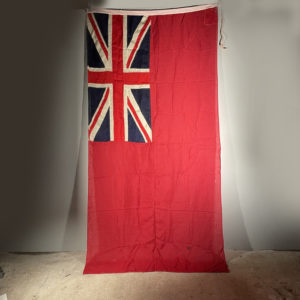
A British Red Ensign flag
£175 -
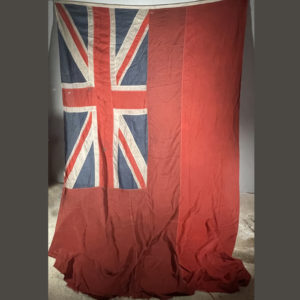
A British Red Ensign flag
£145 -
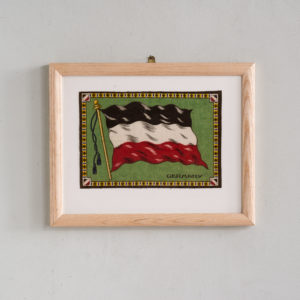
Felt Flags
£95Felt Flags
It was between 1905 and 1910 that tobacco companies in America, began inserting textile items into their cigarette and tobacco products at a time when there was much competition between the tobacco companies and advertising was important to entice new customers, and build brand loyalty. This may have been a direct marketing strategy to entice women into smoking cigarettes, as women were encouraged to gather up these small textiles inserts from spouses or friends and sew them into useful and beautiful items for the home, including quilts, pillows and table covers.£95 -
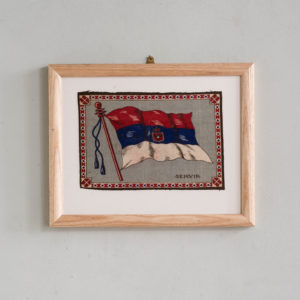
Felt Flags
£95Felt Flags
It was between 1905 and 1910 that tobacco companies in America, began inserting textile items into their cigarette and tobacco products at a time when there was much competition between the tobacco companies and advertising was important to entice new customers, and build brand loyalty. This may have been a direct marketing strategy to entice women into smoking cigarettes, as women were encouraged to gather up these small textiles inserts from spouses or friends and sew them into useful and beautiful items for the home, including quilts, pillows and table covers.£95 -
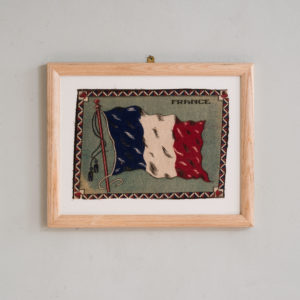
Felt Flags
£95Felt Flags
It was between 1905 and 1910 that tobacco companies in America, began inserting textile items into their cigarette and tobacco products at a time when there was much competition between the tobacco companies and advertising was important to entice new customers, and build brand loyalty. This may have been a direct marketing strategy to entice women into smoking cigarettes, as women were encouraged to gather up these small textiles inserts from spouses or friends and sew them into useful and beautiful items for the home, including quilts, pillows and table covers.£95
Featured Items
-
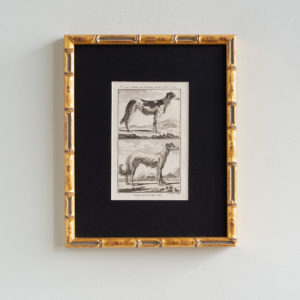
18th Century French Engravings of Dogs
£175 each18th Century French Engravings of Dogs
Published for, Histoire naturelle, générale et particulière (1749–1804), which was the first modern attempt to systematically present all existing knowledge in the fields of natural history, geology, and anthropology.£175 each -
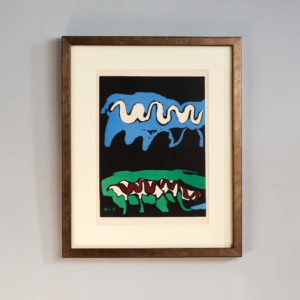
The Four Elements, Earth by Francisco Bores, Verve Vol. 1 / No. 1.
£600The Four Elements, Earth by Francisco Bores, Verve Vol. 1 / No. 1.
The Verve Review was a purposefully luxurious. It ran from 1937 to 1960, but with only 38 editions available, due to the high degree of design and editorial work dedicated to each issue. Each edition contained unique lithographic prints, commissioned by the editor, and each cover a double-page lithograph elaborated by one of the artists contained within. It was the brainchild of its editor Stratis Eleftheriades, a Greek National who moved to Paris in the early thirties to take part in the growing Modernist movement, writing under the name of Teriade.£600 -
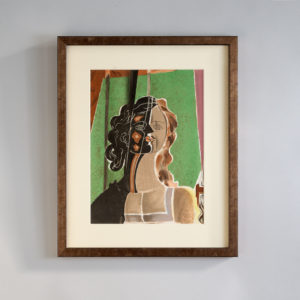
Figure by Georges Braque, Verve Vol 2 / No. 5-6.
£800Figure by Georges Braque, Verve Vol 2 / No. 5-6.
The Verve Review was a purposefully luxurious. It ran from 1937 to 1960, but with only 38 editions available, due to the high degree of design and editorial work dedicated to each issue. Each edition contained unique lithographic prints, commissioned by the editor, and each cover a double-page lithograph elaborated by one of the artists contained within. It was the brainchild of its editor Stratis Eleftheriades, a Greek National who moved to Paris in the early thirties to take part in the growing Modernist movement, writing under the name of Teriade.£800 -
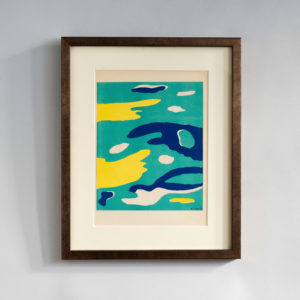
The Four Elements, Water by Fernand Leger, Verve Vol. 1 / No. 1.
£600The Four Elements, Water by Fernand Leger, Verve Vol. 1 / No. 1.
The Verve Review was a purposefully luxurious. It ran from 1937 to 1960, but with only 38 editions available, due to the high degree of design and editorial work dedicated to each issue. Each edition contained unique lithographic prints, commissioned by the editor, and each cover a double-page lithograph elaborated by one of the artists contained within. It was the brainchild of its editor Stratis Eleftheriades, a Greek National who moved to Paris in the early thirties to take part in the growing Modernist movement, writing under the name of Teriade.£600
